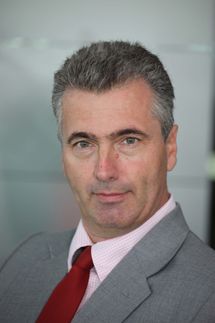Bayer HealthCare adapts pharmaceutical research and development to suit new business conditions
Advertisement
Bayer HealthCare (BHC) is systematically continuing the realignment of its pharmaceuticals business and has decided to adapt global pharmaceutical research and development to suit changed business conditions at the unit. This will bring the Research and Development departments in line with the Pharmaceuticals Division's strategy of concentrating on specific therapeutic segments and increasing regional differentiation. In the future, research at Bayer HealthCare will concentrate on the therapeutic fields of cancer and cardiovascular risk management including diabetes at its sites in West Haven, Connecticut, and Wuppertal, Germany.
The realignment is intended to boost the efficiency of the Pharmaceuticals Division and BHC in the medium term. It will also include reductions to global personnel in Research & Development and Production, affecting some 560 positions. Approximately 110 jobs in the United States and around 440 jobs in Germany will be affected by the restructuring measures. Bayer's Employment Pact with employees means the company may not dismiss staff in Germany for economic reasons before the end of 2007. Bayer plans to reduce personnel in a way that will minimize social hardship and will seek to find individual solutions for the staff affected.
In the medium term, the research and development budget for the Pharmaceuticals Division will be set at a competitive level of approximately 20 percent of pharmaceutical sales. "We intend to use our resources in a targeted fashion to exploit our research and development capacities to the best of our abilities and in a manner suitable to a company of our size," explained Wolfgang Plischke, Head of Bayer HealthCare's Pharmaceuticals Division, adding, "Thanks to our new pharmaceutical research and development strategy and the recently signed agreement with Schering-Plough in the United States, we are now on track to focus our business," he adds.
Activities in the Wuppertal Research Center are concentrated on the field of Cardiovascular Risk Management in the indications coronary heart disease and thrombosis. Pharma intends to systematically use its many years of experience and expertise in the field of cardiovascular disease to continue developing primary care products. At the same time, the Pharmaceuticals Division will establish its own unit for product-flanking research in Wuppertal. This unit will have the assignment of exploiting the potential of late-stage development candidates and products that have already been launched on the market, including what is known as life-cycle management, i.e. the further development of marketed drug products and the scientific assessment of licensing projects.
The Pharmaceuticals Division has set up the Bayer Cancer Research Center at its site in West Haven, Connecticut, where it also conducts research into diabetes. Since October 1, 2004, West Haven has also been the home of Bayer's new Oncology Business Unit, which holds global responsibility for this field and is preparing the market launch of BAY 43-9006, a promising development candidate for the treatment of tumor disorders such as advanced renal cell carcinoma. Bayer recently announced that it intends to concentrate on specialist drugs and biotech products, such as Kogenate for the treatment of hemophilia, Trasylol, which is used during open-heart surgery and Viadur, for the treatment of prostate cancer, in the United States. The transfer of the primary care business to Schering-Plough in the United States led to a reduction of approximately 1,800 staff in Marketing and Sales. The majority of these staff have since received an offer from Schering-Plough.
Development projects in other therapeutic segments such as anti-infectives and urology will be continued until the next development stage. Afterwards the company will examine different options for creating the best value from these projects - possibly including out-licensing. New active substance classes for the treatment of viral and bacterial infections or urological disorders are no longer on the research agenda. Bayer HealthCare intends to exploit the potential of its projects, technologies and patents in anti-infectives research to the greatest possible extent and is therefore investigating the possibility of a spin-off.
The personnel adjustments in Research and Development and other significant savings will bring the Pharmaceuticals Division cost savings of approximately EUR 130 million by 2006. The one-time costs relating to this will depend on the exact measures taken, which haven´t yet been agreed with employee representatives. The restructuring measures that have been ongoing since 2001, the reorganization in the United States and the new R&D strategy will allow Bayer HealthCare to reduce its cost base by approximately EUR 1 billion by 2006.






























































